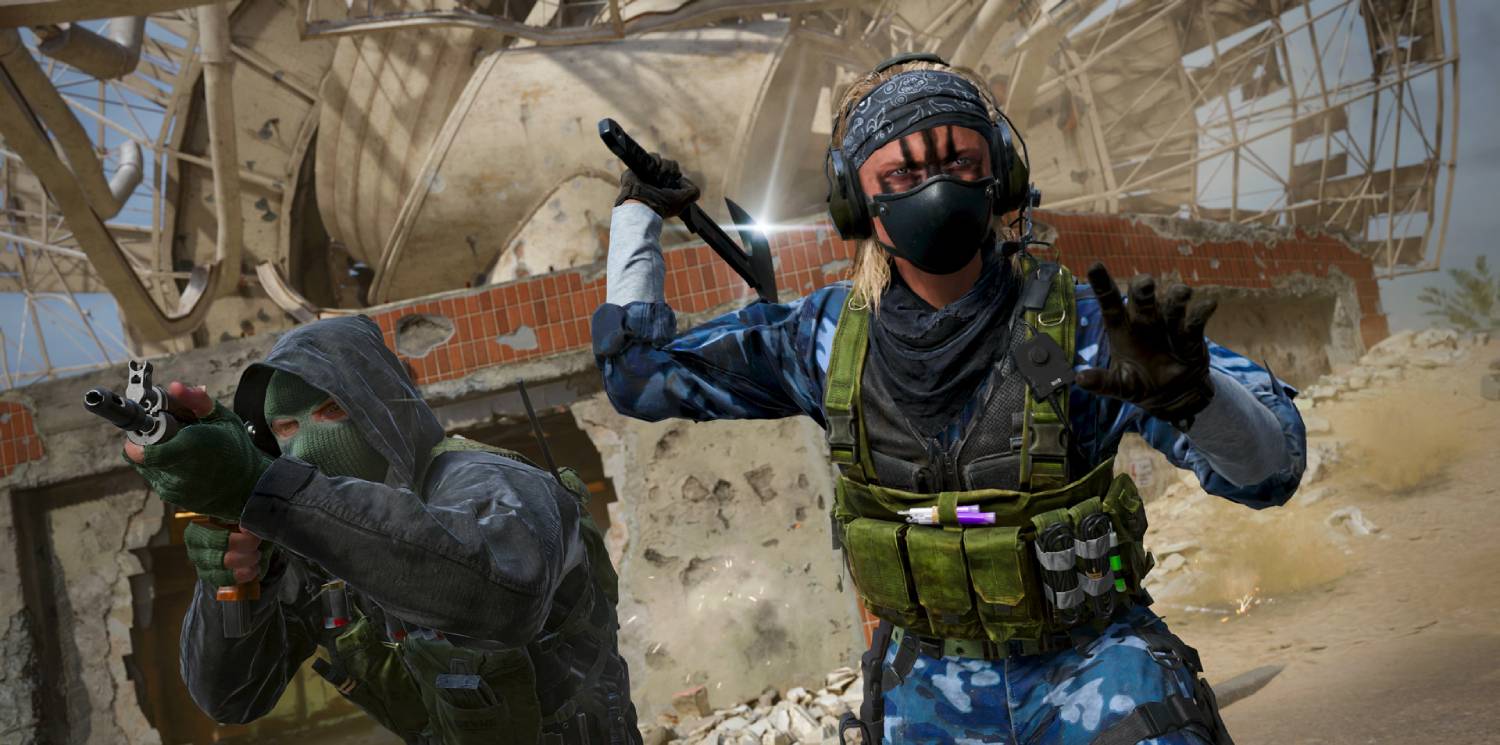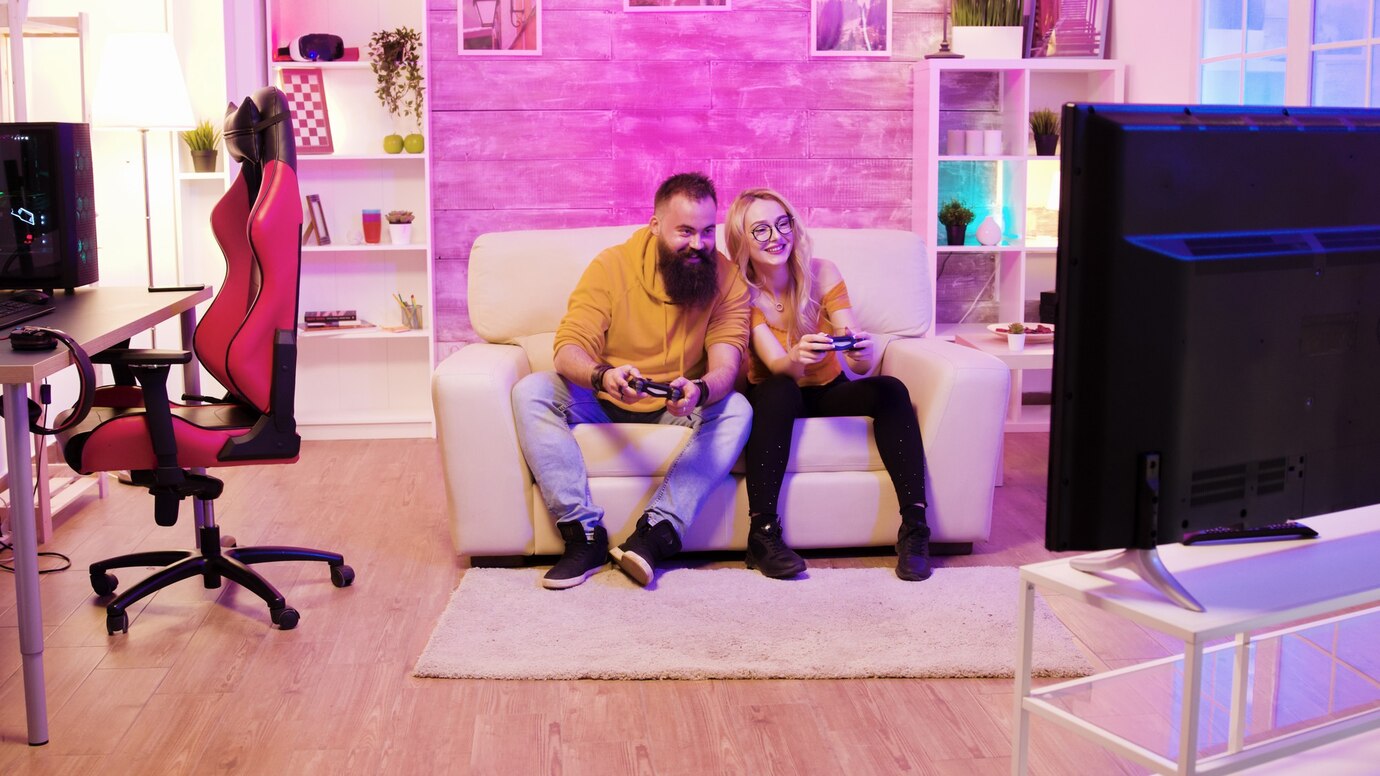The Gaming Blog

How to Avoid Toxicity in Online Gaming Communities
Online gaming communities unite players globally, but they can harbour hostility. Harassment and aggressive banter in games make the environment toxic, ruining the fun of multiplayer gaming. Yet, transforming negativity into positivity is feasible by cultivating an inclusive culture.
In this guide, we’ll explore solutions for gaming toxicity, uncover ways to nurture a supportive gaming atmosphere and explore ways for players and developers to promote healthier interactions in online spaces.
Pro Tip: To combat toxicity effectively, make use of mute and report features when encountering abusive players. This helps maintain a positive atmosphere while enabling developers to take action against harmful behaviour.
Quick Guide: How to Avoid Toxicity in Online Gaming Communities
- Use Mute and Report Features: Don’t engage with toxic players. Mute them and report the behaviour to keep the community safe.
- Lead by Example: Promote positive interactions by complimenting teammates, avoiding negativity, and welcoming new players.
- Play with Like-Minded Gamers: Join Discord servers, social media groups, or in-game communities that prioritise respect and teamwork.
- Encourage Positive Behaviour: Developers can reward good behaviour with in-game recognition, while players can celebrate kindness and sportsmanship.
- Set Personal Boundaries: Control who interacts with you and take breaks to maintain a healthy gaming mindset.
- Support Games with Positive Communities: Play and promote games that actively work to reduce toxicity, like Overwatch 2 or Final Fantasy XIV.
Important Tip: Taking care of your mental health is key to avoiding toxic interactions. Don’t hesitate to take breaks when frustration sets in and join games that focus on promoting positivity and inclusivity.
What Is Gaming Toxicity?
Toxicity in online gaming shows up in many ways: verbal abuse, griefing, cheating, and exclusion. This digital menace affects everyone, from casual players to fierce competitors. It’s a pervasive issue that demands our united front. Together, we can tackle this challenge and restore the joy of gaming.
Common Types of Toxic Behavior in Gaming:
- Verbal Harassment: Insults, threats, and offensive language in voice or text chat.
- Griefing and Trolling: Intentionally disrupting gameplay by sabotaging teammates or harassing opponents.
- Cheating and Exploiting: Using hacks, bots, or unfair advantages ruins the fun for others.
- Exclusion and Gatekeeping: Shunning new players, being elitist, or creating unwelcoming communities.
Noticing these behaviours is the first step to reducing negativity in multiplayer games. This will help make gaming spaces more enjoyable for everyone.
Gaming Toxicity Solutions: How Players Can Help

1. Use Mute and Report Features Effectively
In the realm of modern multiplayer gaming, tools to mute and manage toxic players abound. Yet, these vital features often gather dust, underappreciated and overlooked. Reporting abusive behaviour is essential; it keeps the gaming community thriving and accountable. Embrace these options to foster a fair and friendly gaming experience.
How to Use These Features Effectively:
- Mute toxic players instead of engaging in arguments.
- Report repeat offenders so game developers can spot and act on harmful behaviour.
- Encourage others to use reporting systems to make the community safer.
2. Lead by Example: Promote Positive Interactions
Creating a vibrant gaming community starts with setting a shining example. Cultivating sportsmanship and respect transforms the atmosphere, banishing negativity.
Ways to Foster Positivity:
- Compliment teammates and opponents on good plays.
- Avoid responding to toxicity with more toxicity.
- Support and welcome new players rather than gatekeeping knowledge or skills.
3. Play with Like-Minded Gamers
A group of respectful and supportive players can really enhance your gaming experience. Many platforms offer features to find like-minded individuals.
Where to Find Positive Gaming Communities:
- Discord servers are dedicated to cooperative and friendly gameplay.
- Social media groups and forums promoting non-toxic gaming.
- In-game guilds, clans, or friend lists that prioritise teamwork and respect.
What Game Developers Can Do to Reduce Toxicity

1. Implement Strong Anti-Toxicity Features
Game developers help reduce toxicity in online gaming. They do this by adding tools that encourage fair and respectful play.
Recommended Features:
- AI-driven moderation tools that detect and filter toxic messages.
- Strict penalties for repeat offenders, including chat restrictions and temporary bans.
- Real-time monitoring systems that reward positive behaviour.
2. Improve Communication and Moderation
Better moderation systems ensure that reports and complaints are addressed swiftly and fairly.
Steps for Developers:
- Provide clear communication on reporting outcomes to build trust with players.
- Offer community guidelines that emphasise inclusivity and respect.
- Encourage developers and streamers to publicly endorse positive gaming behaviour.
3. Encourage Reward Systems for Good Behavior
Rewarding players who help the community can shift focus. Instead of punishing bad behaviour, we can celebrate good actions.
Examples of Positive Reinforcement:
- Special in-game rewards for players with positive reputation scores.
- Honour systems where teammates can commend each other for good sportsmanship.
- In-game recognition for helpful players who mentor or support new gamers.
How to Create a Positive Gaming Environment

1. Establish Personal Boundaries
Setting personal boundaries helps players steer clear of toxic experiences. This way, they can keep a healthy gaming mindset.
Tips for Managing Online Interactions:
- Limit time spent in toxic communities or competitive matches that cause frustration.
- Use privacy settings to control who can message or interact with you.
- Take breaks if a gaming session becomes stressful or overwhelming.
2. Promote Mental Health Awareness in Gaming
Toxicity in gaming often arises from frustration and stress. Personal struggles can also play a part. By fostering mental well-being, we pave the way for a healthier gaming realm. Let’s change the game and build a place where positivity thrives and friendship grows.
Ways to Support Mental Health in Gaming:
- Encourage discussions about managing gaming-related stress.
- Recognise when to step away from a game that is causing frustration.
- Support initiatives and organisations that focus on mental health in gaming.
3. Support Games That Prioritize Positive Communities
Certain games champion non-toxic environments, taking strides to cultivate kindness. Supporting these titles and their creators shows that positive gaming matters.
Examples of Games with Great Communities:
- Overwatch 2 – Features endorsement systems rewarding positive behaviour.
- Animal Crossing: New Horizons – Encourages creativity and peaceful social interactions.
- Final Fantasy XIV – Known for its welcoming player base and strong moderation policies.
Frequently Asked Questions (FAQs)
1. What are some early signs of toxicity in online gaming?
Early signs include offensive language, repeated trolling, and griefing. Players may show aggressive behaviour. This includes yelling at teammates or intentionally ruining the game.
2. How can I protect myself from toxic players?
Use mute and block features to limit interactions with toxic players. Report inappropriate behaviour, and if necessary, adjust privacy settings to avoid unwanted interactions.
3. Do developers actively monitor toxic behaviour in their games?
Yes, most large gaming companies use AI to find and handle toxic behaviour from player reports. However, the effectiveness varies by game and platform.
4. Can gaming toxicity affect mental health?
Yes, exposure to toxicity can lead to increased stress and anxiety. To enjoy gaming, take breaks, set limits, and join friendly communities.
5. Are there games specifically designed to reduce toxicity?
Yes, games like Overwatch 2, Valorant, and Final Fantasy XIV use anti-toxicity measures. They have endorsement systems and strict moderation to encourage positive play.
Building a Better Gaming Community: Choosing Positivity Over Toxicity
Toxicity often appears in online gaming, but there are simple ways to cut down on negativity in multiplayer games. Players can use in-game reporting tools and encourage positive interactions. This way, they can help create a better gaming environment. Likewise, developers must continue improving anti-toxicity measures and encouraging sportsmanship through reward-based systems.
When we join forces, we can craft gaming realms that shimmer with fun. Together, let’s build spaces that embrace all players with open arms. Opt for positivity over toxicity to spread joy, whether you’re in ranked matches or chilling with friends.









